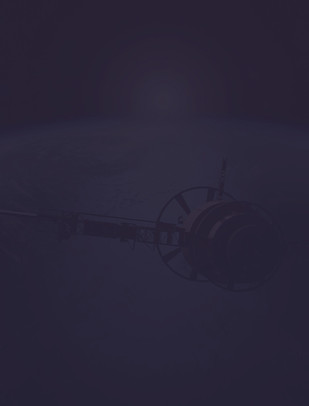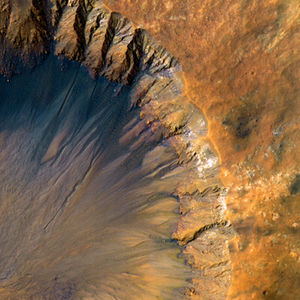

What we do
Earth-Space Sustainability is a research initiative founded in December 2020 aimed at using social science knowledge to tackle the dual-challenge of (1) outer space sustainability and (2) attaining the United Nations Sustainable Development Goals (SDGs) through new space based infrastructures. In so doing, Earth-Space sustainability calls for a paradigmatic shift towards the notion of a sustainable Earth-Space relationship.
The idea of outer space sustainability has often been perceived as 'distant' to immediate challenges on Earth, such as climate emergencies. In the New Space age, the outer space environment will increasingly influence sustainability on Earth in ways beyond what most of us have realized. We are now witnessing the dawn of an era in which the sustainability of Earth and Space environments become more intertwined than ever.
Social sciences have spent decades of research on tackling Earth's sustainability challenges. Extending what we have learned so far into the space realm will better prepare us for the new kinds of challenges outer space might bring. An integrative perspective of Earth-Space Sustainability could in turn inform us on new ways of managing the vulnerable planet we live on.

Objective
Earth-Space Sustainability aims to use evidence-based social science research to inform forward-looking policy scenarios. Informed by research on sustainability transitions, innovation systems, development economics, socio-ecological and Earth System governance, we use in-depth qualitative and quantitative methodologies to analyze complex Earth-Space sustainability challenges. Our research deals with upcoming challenges in the following three domains:

Developing an Earth-Space paradigm
earth-space
What is beyond Anthropocentrism?
Extending planetary boundaries to outer space

Shaping a sustainable relationship
sustainability
Peaceful use of outer space
Inclusive Earth-Space economy
Deploying space technologies to attain SDGs

governance
Contributing to an emerging Earth-Space governance framework
Integrating social science research
Deriving strategic actionable policy insights
Research on Earth-Space Sustainability
Earth-Space Sustainability currently focuses on the following areas concerning Earth-Space sustainability: peaceful use of outer space, inclusive and sustainable Earth-Space economy, and the attainment of SDGs through space based infrastructures. With that, Earth-Space Sustainability asks the following questions and seeks informed answers to help tackle these emerging challenges:

Founder

Dr. Xiao-Shan Yap
Utrecht University, The Netherlands
Founder of Earth-Space Sustainability
Director and Principal Investigator,
ERC Project PLANETSTEWARDS
Dr. Xiao-Shan Yap is Assistant Professor of Innovation and Global Governance at the Copernicus Institute of Sustainable Development, Faculty of Geosciences at Utrecht University in the Netherlands. Yap is Principal Investigator and the director of a five-year research program (2024 - 2029) on ‘Planetary stewardship in view of earth-space sustainability’ (PLANETSTEWARDS), supported by a 1.5 million euro ‘Starting Grant’ from the European Research Council (ERC).
An interdisciplinary social scientist, Yap focuses on the intersection of innovation and transitions, global governance, and development economics. She pioneered the concept of ‘earth-space sustainability’, which advocates for tackling challenges on Earth and in space in an integrative way as anthropogenic activities expand to outer space. In 2020, she founded ‘Earth-Space Sustainability’, the first science and policy initiative aiming at ensuring sustainable and functional earth-space systems in the future. In line with the initiative, she is also Co-Director of the Working Group on Earth-Space Governance at the Earth System Governance Project, Chair of the ‘2024 Earth-Space Symposium’, Senior Policy Advisor to the EPFL Space Center, Swiss Federal Institute of Technology Lausanne in Switzerland, and (co)Chair of Commons in Space conference at the International Association for the Study of the Commons (IASC) from 2022 - 2023. Additionally, Yap is a senior member of the Steering Group at the Sustainability Transitions Research Network (STRN) and serves on the Editorial Board of the leading journal Environmental Innovation and Societal Transitions.
Among others, Yap's work had also been awarded a Swiss National Science Foundation (SNSF) Starting Grant of 1.8 mil CHF in 2023, a Geneva Science-Policy Interface (GSPI) Impact Collaboration Grant, a Marie-Sklodowska-Curie Fellowship in 2017, and a Swiss Government Excellence Scholarship in 2015.
Besides working alongside internationally leading scientists and scholars, Yap has been accompanied by a group of young, curious, and bright researchers who contribute their time and effort to the overall endeavor. To see the list of former contributors, you can click on the following box.
PLANETSTEWARDS is an ambitious ERC-funded project that addresses these pressing sustainability challenges on and beyond Earth. The project analyses and compares the co-existing stewardship approaches – as led by the government, market, science and engineering, or communities – to understand how they impact earth-space sustainability with implications on a planetary scale. Using novel methods, the project will formulate integrative strategies for future earth-space sustainability.
Associated Projects and Initiatives
Relevant Publications

Contouring 'earth-space sustainability'
Yap, X.-S., & Truffer, B. (2022). Contouring 'earth-space sustainability'.Environmental Innovation and Societal Transitions, 44, 185-193. Read more

The emerging global socio-technical regimes for tackling space debris: A discourse network analysis
Yap, X.-S., Heiberg, J., & Truffer, B. (2023). The emerging global socio-technical regimes for tackling space debris: A discourse network analysis. Acta Astronautica. Read more
Towards earth-space governance in a multi-planetary era
Yap, X.-S. & Kim, R. E. (2023). Towards earth-space governance in a multi-planetary era. Earth System Governance, 16, 100173 Read more













